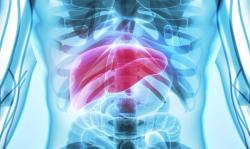
OR WAIT null SECS
Infliximab Biosimilar Shows Promise for Multiple Conditions in Phase 4, Post-Marketing Trial in Korea
A phase 4, post-marketing surveillance study in Korea provides insight into the safety and efficacy of SB2, an infliximab biosimilar, across a wide range of immune-mediated inflammatory diseases, including rheumatoid arthritis, ulcerative colitis, and ankylosing spondylitis.
Data from a phase 4 post-marketing surveillance study of SB2, an infliximab biosimilar, is providing clinicians with new insight into the safety and effectiveness of the agent in adult patients with immune-mediated inflammatory diseases.
Conducted in 10 centers in South Korea, the study, which included patients with multiple rheumatic and gastroenterological conditions, results of the study demonstrate the infliximab biosimilar SB2 was effective in nearly 95% of infliximab-naive activity and more than 80% of switched patients, with just 12.8% reporting adverse events during the study.
“This prospective, multicenter, observational post-marketing surveillance study in a Korean population confirmed the safety and effectiveness of the infliximab-biosimilar SB2 in routine clinical practice across indications,” wrote investigators.
With medicine’s ever-present interest in improving patient access to affordable care, interest in establishing the safety and efficacy of biosimilar products has been at the forefront of research efforts in the space since the advent of biologic medicines. With 8 indications from the US Food and Drug Administration dating back to 1998, and including conditions ranging from ulcerative colitis to plaque psoriasis, the prospect of an infliximab biosimilar could improve equitable access to effective therapeutics for multiple patient populations.
With this in mind, the current phase 4 post-marketing surveillance study was launched by a team of investigators from Korea to assess safety and efficacy of SB2, an infliximab biosimilar, in patients with multiple different forms of immune-mediated inflammatory disease. The study enrolled all consecutively presenting patients using SB2 as per the approved Korean label, which indicates the agent for use in rheumatoid arthritis, Crohn’s disease, ulcerative colitis, ankylosing spondylitis, psoriatic arthritis, and psoriasis.
The primary endpoint of interest for the study was the safety of SB2, which investigators defined as rate of adverse events and adverse drug reactions. The secondary endpoint of interest was the effectiveness of SB2, which investigators measured as through an overall effectiveness assessment. Other secondary endpoints of interest included disease-specific activity scores for each indication.
Overall, the phase 4 study enrolled 181 patients for potential inclusion. Of these, 180 were included in the safety analysis and 128 were included in the effectiveness analysis. Most of the patients identified for inclusion were infliximab-naive and 16.1% were switched patients. The most common condition among participants was rheumatoid arthritis (48.9%), followed by ankylosing spondylitis (31.1%), Crohn’s disease (10.0%), ulcerative colitis (8.9%), and psoriatic arthritis (1.1%). The mean disease duration among the study cohort was 5.9 (SD, 6.21) years.
Upon analysis, adverse events were identified among 12.8% of patients included in the safety analysis, with just 3 (1.7%) serious adverse events reported by patients. For adverse drug reactions, a total of 14 (7.8%) were observed during the study. In the effectiveness analyses, results indicated SB2 was considered effective among 94.6% of infliximab-naive patients and 82.4% of switched patients.
Investigators pointed out disease activity scores decreased significantly from baseline to week 30, with mean changes of 1.9 (SD, 0.79) in DAS28 for rheumatoid arthritis, 3.8 (SD, 1.68) in KBASDAI for ankylosing spondylitis, 200.4 (SD, 112.47) in CDAI for Crohn’s disease, and 6.6 (SD, 2.92) in Full Mayo Score for ulcerative colitis. Further analysis demonstrated the persistence rate of SB2 treatments was 88.3% among participants and the median duration of treatment with the biosimilar agent was 30.1 weeks. Specifically, the persistence rates for each indication at week 32 were 87.1% and 84.9%, 89.4%, 50%, 85.2%, and 100% for rheumatoid arthritis, followed by ankylosing spondylitis, psoriatic arthritis, Crohn’s disease, and ulcerative colitis, respectively.
“This is the first real-world evidence data on the safety and effectiveness of the infliximab-biosimilar SB2 in Korea. SB2 was well tolerated throughout the study. The study results establish that SB2 is an effective treatment in clinical practice in Korea and are comparable to real-world evidence of reference infliximab and other SB2 real-world evidence data,” investigators added.
This study, “Safety and Effectiveness of SB2 (Infliximab Biosimilar) in Adult Patients with Immune-Mediated Inflammatory Diseases: A Post-Marketing Surveillance in Korea,” was published in Advances in Therapy.


